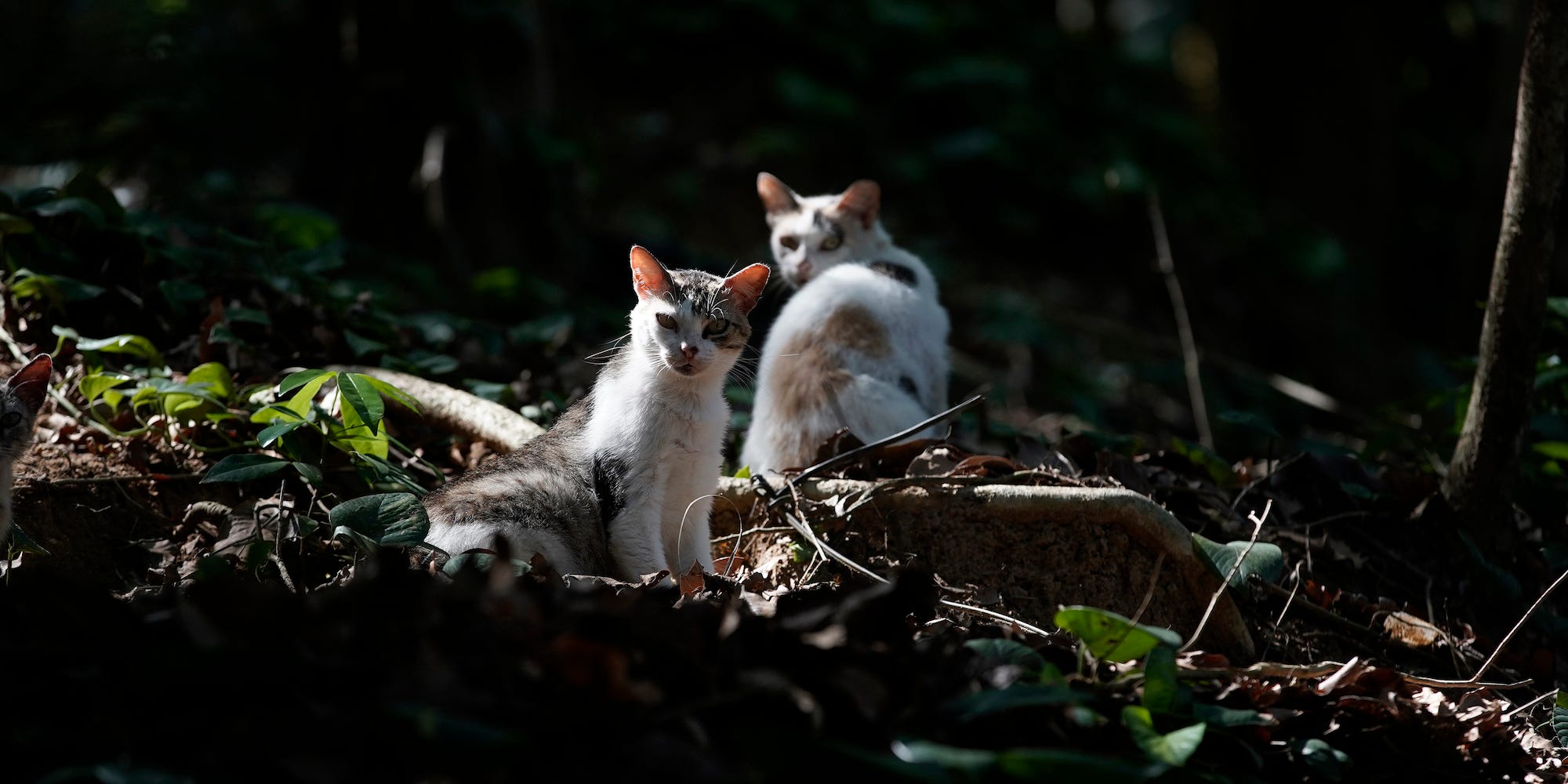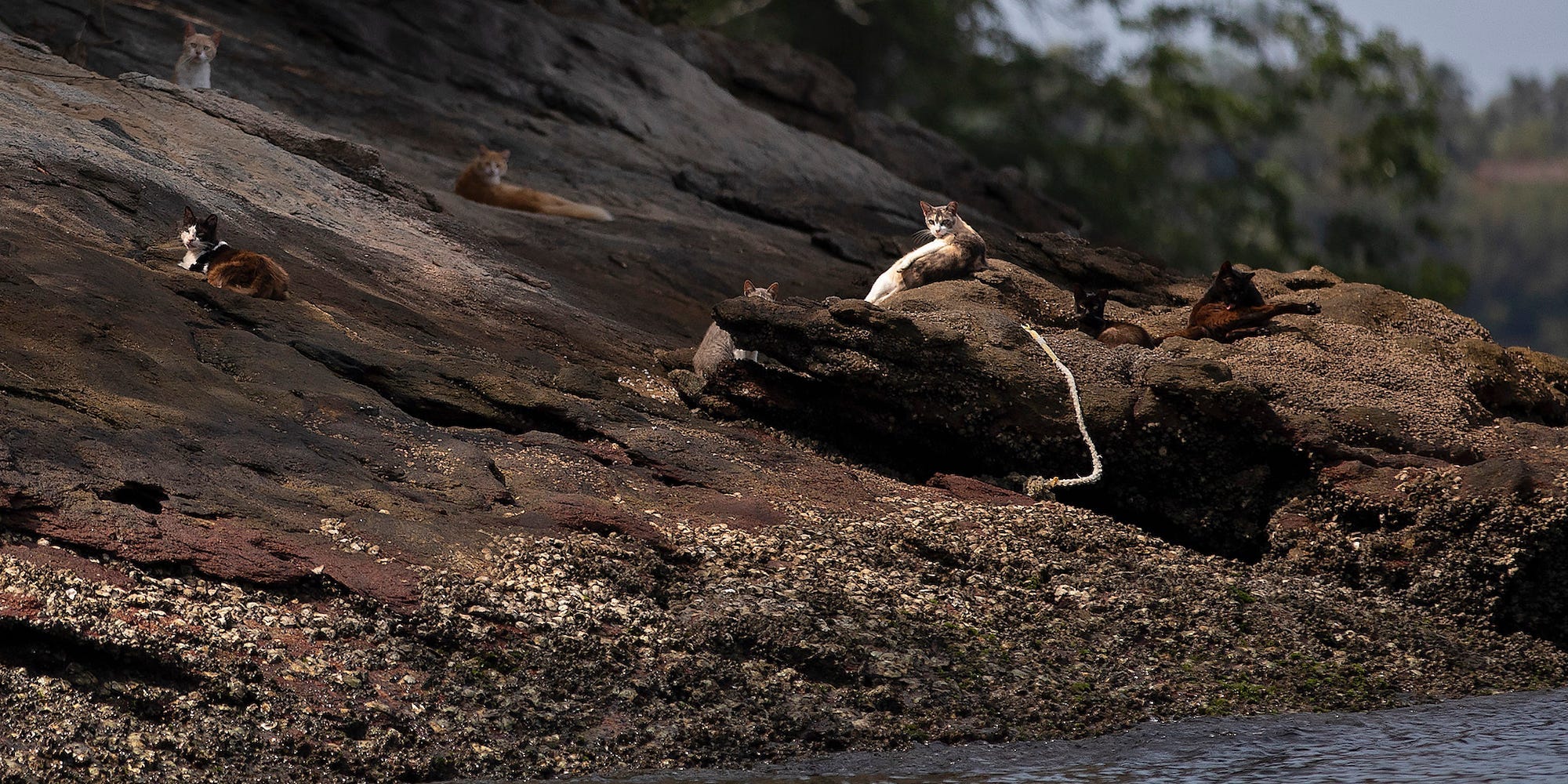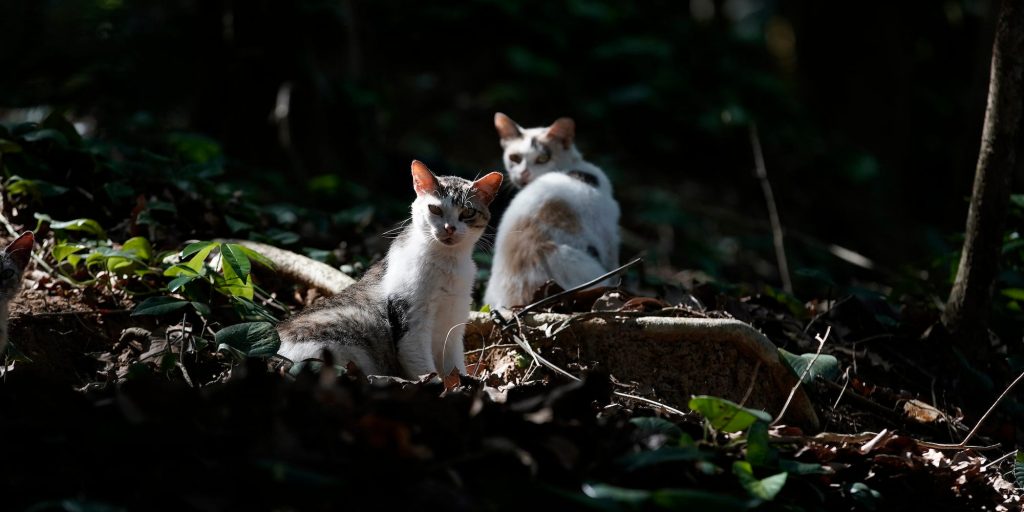
AP Photo/Silvia Izquierdo
- A Brazilian island has become home to hundreds of abandoned cats, The Washington Post reported.
- Many of the cats have turned feral and the population on the island is only growing.
- Many people are no longer able to take of their pets and shelters are overburdened.
- Visit Insider's homepage for more stories.
Hundreds of cats were abandoned on Ilha Furtada, an island off the eastern coast of Brazil, The Washington Post reported.
The island is better known as Ilha dos Gatos: Island of the Cats, and as the coronavirus pandemic raged, more cats were dropped off there, and some had ultimately reverted to their feral state, the newspaper said.
It is not known exactly how many cats are on the island, but one Brazilian reporter claimed there were 750; others estimated more.
More than 16.8 million people have been infected with COVID-19 in Brazil with over 470,000 deaths so far, according to data from Johns Hopkins University. Brazilians no longer able to take care of the cats would either drop the cats off on the island or pay a boat worker to do it, according to The Post.
Andrea Rizzi Cafasso, the director of a shelter near the island told The Post people would threaten to take their cats to the island if there was no room for them at the shelter.
There's still debate and a myriad of stories on how the cats first showed up on the island, but Amélia Oliveira, a veterinarian who travels Brazil, told The Post that in 2012 she was sent a video of the cats and went to the island to check on them.

AP Photo/Silvia Izquierdo
She took some of the more socialized cats back to be adopted and began neutering cats that had gone completely feral. Her organization, Veterinarians on the Road, has already neutered 380 of the cats on the island, the report said.
Until the pandemic began, the population was under control, Oliveira told The Post. Fishers would leave some of their catch, and people would leave food and water for the cats, but that came to halt once the spread of COVID-19 forced people to stay inside. The cats' existence on the island worsened as a result, according to the report.
In October, the Associated Press reported many cats were left without food and water, resulting in kidney problems among other medical concerns. The cats also suffered from wounds or poisonous bites from insects on the island.
Volunteer groups at the time began installing food and water dispensers to help sustain the felines, but there's still no permanent solution to the situation as more cats get dropped off and people are undeterred by anti-dumping rules.
"We really need someone who can join forces with us to try to heal this criminality that, for us, is cruelty," Joice Puchalski, a volunteer group coordinator told the AP.

